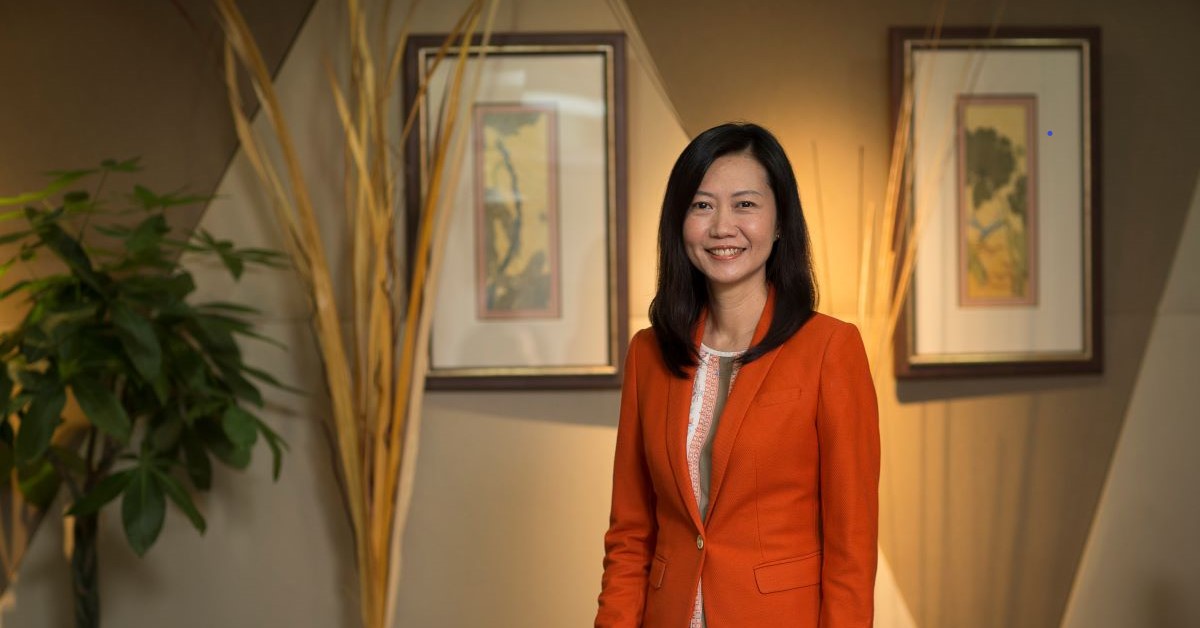
The communication industry might be your best bet if you’re worried about losing your job to an AI machine in the future. That is, of course, if you’re willing to practise it strategically.
Assistant Professor of Communication Management, Yeo Su Lin advises that people who simply take instruction and take on a technical role might be more in danger of facing that fate than those who can effectively manage organisational narratives and communication with today’s diverse and polarised stakeholder groups. With technology increasingly easing the pace for misinformation and disinformation, communication needs to remain relevant in order to guard and protect an organisation’s corporate reputation – a valued asset that many companies have painstakingly built over many years but can be shredded overnight.
“To be able to practise strategically, it is essential for practitioners to have the competencies to own, integrate, drive as well as defend corporate narratives across different communication platforms so as to achieve tangible and intangible business outcomes that are favourable to the organisation. Such a role requires strategic thinking, relevant skill sets, creativity, empathy and an understanding of business contexts which changes constantly,” says Su Lin, who is also Singapore Management University’s Academic Advisor for Business Majors and Director of Institute for Public Relations (USA)-Singapore Management University Alliance (Southeast Asia).
While her interest in communication was apparent even when she was a young girl, she was unsure how she wanted to pursue it initially. A dearth of communication programmes offered by local universities in the late 1980s led Su Lin - who did not want to do ‘just any Arts degree’ - to North America where she did her Bachelors degree in Communication. Lured by the glamour of broadcast journalism, she returned home to find a job in that field.
Unfortunately, broadcast journalism with its odd-hour work shift wasn’t a good fit for a newly-married graduate, especially one who was ready to start a family. This led Su Lin to explore and develop a career in corporate communication, a move that satisfied both her for the field and her desire to start a family.
The mother-of-two managed corporate communication, and public and investor relations in the banking and financial services sector for 12 years, before she decided to focus on bringing up her sons, aged eight and three, at the time.
Not one to stay idle, she took advantage of the 11 years she spent as a stay-at-home mother to earn an impressive array of Communication degrees (a Masters, PhD, and Post-doctoral studies). This was also how she discovered her newfound love for teaching.
She explains: “Being retrained as a researcher meant I could stay in touch with relevant developments in the industry and I could better comprehend business phenomena and knowledge which I knew would help me add value to my students’ learning experience and add value in class.”
Su Lin currently teaches a range of full credit communication modules from undergraduate to postgraduate and executive seminar programmes. For undergraduates, she teaches Foundations of Strategic Communication, and Strategic Communication in Asia. She introduced the latter last semester as a way of broadening her students’ understanding of communication beyond how it is practised in Singapore. Both modules are geared to ease the path for her students to be well-adjusted in the working world.
One key takeaway for all her students, she says, is “you need to be strategic thinkers who are well equipped with communication skill sets and business knowledge. That way, you can better manage two-way communication with challenging stakeholder groups and demonstrate business and social returns for your works.”
Outside of teaching, Su Lin immerses herself in research projects as part of her routine to stay updated with what is happening in the industry. One of which, soon to be published in the International Journal of Business Communication, explores the types of emotions that were posted by social media users in response to the MH370 search suspension announcement. By content-analyzing 5,062 tweets guided by the revised Integrated Crisis Mapping Model, she and her peers found that an unexpected emotion (Joy) was also expressed, and as a result of the study, strongly advocate the importance for organisations to engage in social listening.
There is an added pressure in the industry now, Su Lin notes, because of the interaction between technology and the communications industry, given that professionals have to manage communication with internal and external audiences, and online and offline media, when before they just had to deal with traditional media outlets.
She concludes, however, that this has only served to heighten the importance of communication: “Today’s public and consumers aren’t convinced solely by what organisations tell or sell to them. The volatile business environment and the medium of the day demands that organisations actively engage and have authentic conversations with their key stakeholders. It is foremost about building trustworthy relationships, and communication practitioners are given the opportunity to add value, secure a seat in the boardroom, and play an advisory role to CEOs.”
Speak to our Admissions Advisors
Singapore Management University
Lee Kong Chian School of Business
Graduate Programmes Office, Level 4
50 Stamford Road, Singapore 178899
Tel: +65 6828 0882
Join us at the upcoming events
There are no upcoming events.